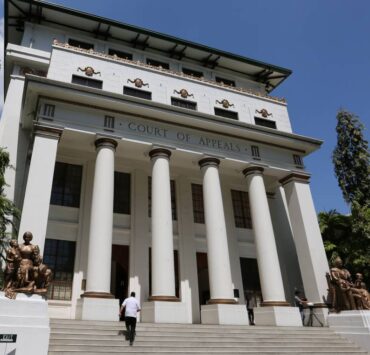‘Uwan’ damaged 16K classrooms–DepEd

The Department of Education (DepEd) said on Wednesday that Typhoon “Uwan” (international name: Fung-wong) damaged a total of 2,953 schools or nearly 16,000 classrooms nationwide.
Based on DepEd’s latest situation report, a total of 15,889 classrooms were affected, with 10,400 sustaining minor damage. Another 3,503 suffered major damage while 1,986 were destroyed.
Bicol region was the most affected, with a total of 8,283 classrooms damaged.
As of Wednesday, the DepEd said that classes in 2,979 schools in affected areas remain suspended, affecting 913,777 students and 46,877 school personnel.
A total of 4,747 classrooms or 968 schools, on the other hand, are still being used as evacuation centers across 12 regions nationwide.
In response to Uwan’s effects, the DepEd said it had mobilized its Disaster Risk Reduction Management teams to conduct damage and needs assessment.
Their initial findings estimated clean-up and clearing operations (Cuco) to cost P151.5 million, while at least P509.6 million would be needed to cover immediate needs and minor repairs.
“Moving forward, DepEd will continue validating damage reports and mobilizing funds of approximately P661.1 million for Cuco and minor repair works,” the DepEd said.
The damage caused by Uwan to the 15,889 classroom is expected to further exacerbate the already worsening shortage nationwide.
CAP Act
Senators led by Sen. Bam Aquino, however, are optimistic that Senate Bill No. (SBN) 1482, or the proposed Classroom-Building Acceleration Program (CAP) Act, would help address the 165,000-classroom backlog in public schools.
Aquino, chair of the Senate committee on basic education, is the principal author and sponsor of the bill.
On Tuesday, 22 senators signed the committee report on SBN 1482 that enables local government units (LGUs) and civil society groups with a proven track record to construct classrooms using national government funds, in compliance with DepEd standards and guidelines.
Senators Francis Pangilinan, Christopher Go, Loren Legarda, Robin Padilla, Raffy Tulfo, Joel Villanueva, Pia Cayetano, Sherwin Gatchalian, Erwin Tulfo, JV Ejercito, Mark Villar and Jinggoy Estrada co-sponsored the measure.
On the other hand, Senators Imee Marcos, Camille Villar, Raffy Tulfo, Legarda, Villanueva, Estrada and Gatchalian co-authored the proposed measure.
The measure has also been included in the Legislative-Executive Development Advisory Council (Ledac) priority list, according to Senate President Vicente Sotto III.
In his sponsorship speech, Aquino called for the swift passage of the CAP Act, saying it will help close the gap and eventually end the massive 165,000-classroom backlog in public schools and promote transparency and accountability in classroom construction.
Preemptive measure
He underscored the need to immediately address the classroom backlog with the help of qualified LGUs and nongovernment organizations before the figure balloons to 219,000 in the next three years if not addressed.
At the same time, Aquino also lamented the slowness of the Department of Public Works and Highways in building classrooms, noting that only 22 of the targeted 1,700 classrooms for 2025 have been completed so far.
“If we want to close the classroom gap by 2031, I think we need to establish 39,000 classrooms every year. Take note, our target for 2025 are 1,700 classrooms only. If that is our target, it appears impossible for us to close the classroom gap,” he said.
“But if we want to close it, in six years, we need to establish 39,000 classrooms per year for six years. The price, roughly, is around P90 billion each year, or to close our classroom gap, we need around P540 billion in six years,” he added.
While the amount required is substantial, Aquino said it is equivalent to just half of the ₱252 billion originally allocated for one year by the government for flood control programs in the proposed 2026 national budget.
Aquino said the government owes it to students to adequately fund classroom construction, calling it a “fitting gift to the country’s 25 million public school learners.”
He also highlighted the bill’s strong anti-corruption safeguards such as a standardized price ceiling to prevent overpricing and ensure that public funds are spent properly.

















